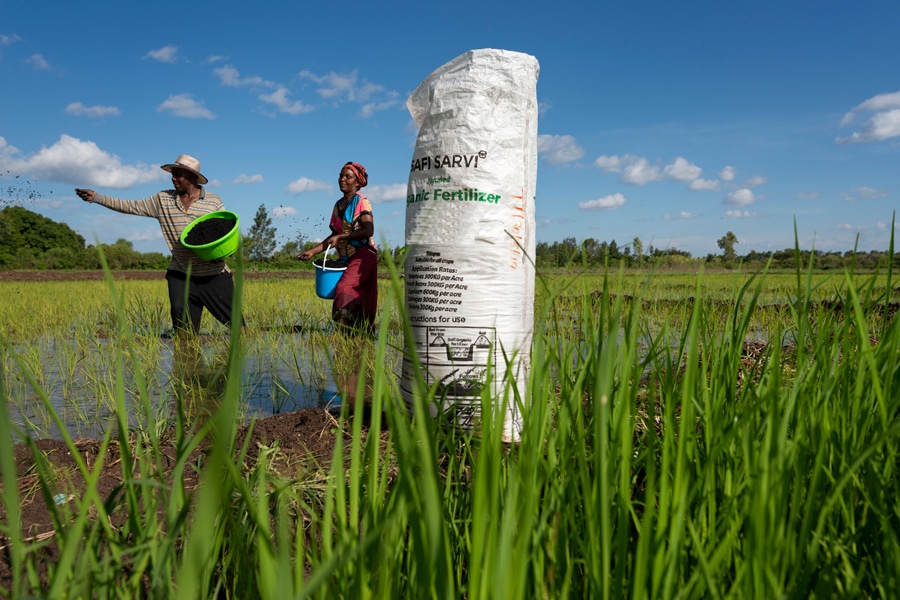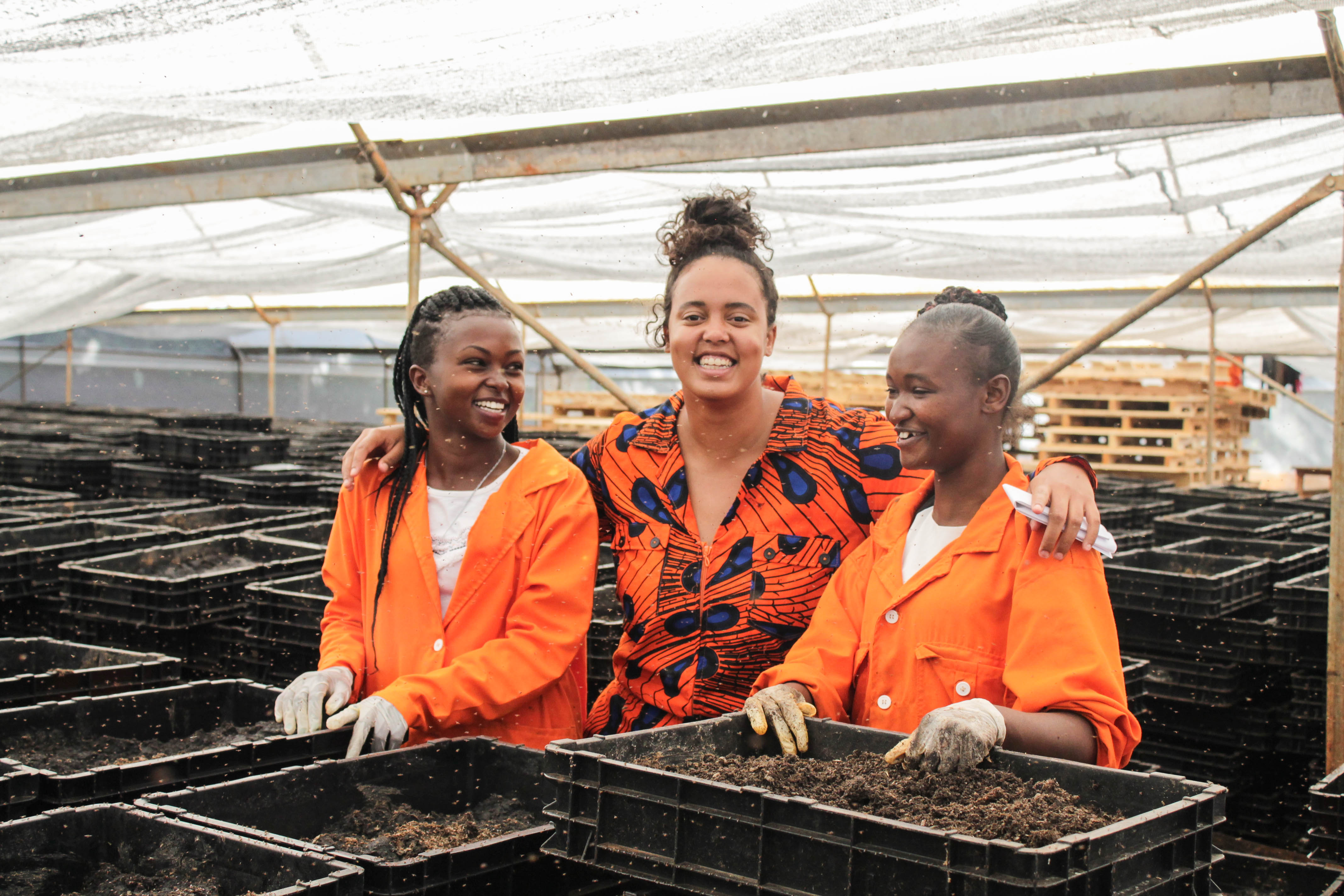
By George Munene
Based in Mwea, Safi Organics turns rice husks into organic fertiliser that is two to three times cheaper than store-bought fertilisers but gives up to 30 per cent more yield.
“A bag of DAP fertiliser currently retails at Sh7,000 and is predicted to rise even higher by the end of the month, a price unaffordable to most small-scale farmers. This is a perilous place for Kenya’s agricultural sector where smallholder production accounts for 78 percent of total production.
We guarantee our farmers a 3:5:3 NPK macronutrient distribution from our fertilisers. 90 percent of them rely solely on Safi products and attest to seeing a 30 per cent rise in their output.
Being made up of 70 per cent organic matter, our fertilisers have the advantage of improving soil health, helping it retain moisture which we've proven saves farmers 15 per cent of their irrigation costs, ”said Safi’s co-founder and CEO Samuel Rigu.
Farmers using their fertilisers in rice fields in Mwea for at least three years have seen their soil pH rise from 4.7 to 6.8--the ideal soil pH for rice cultivation.
Related News: Fertiliser Crisis: Organic gold manure that doubles farmer yields
Related News: Fertiliser Crisis: Making compost manure as alternative to store-bought fertilisers
Founded in 2015, Safi Organics started out providing farmers with an acidic soil ammender (SAFI Biochar) that is sold for Sh1,700. This adds organic material to the soil improving its physical properties,i.e, water retention, infiltration, permeability, aeration, and its structure.
With increased farmer demand the company has expanded its range of products to cover the entire planting process: SAFI Savi, a carbon-negative organic fertilizer that increases farmer yields while reducing soil acidity retailing for Sh2,400. Top-dressing fertilizer (SAFI Sarvi Topper fertilizers) priced at Sh2,400 and SAFI foliar fertilizer costing Sh600.
Setting up the company in the country's rice basket means they are never short of their main raw material –rice chaff. They utilise 15 tons of rice hulls daily which would otherwise have been burnt contributing to greenhouse gases (GHG) build up in the atmosphere. This is then mixed in with what Samuel describes as ‘a secret source’ of organic waste making six tons of fertiliser every day.
Related News: Russia's invasion of Ukraine to push fertiliser & food prices even higher
Safi works with over 1,000 farmers across the country majority of whom are rice growers. Other crops growers have had success with the organic fertiliser include maize, french beans, green grams, bananas, fruits trees, and tomatoes.
“Crops that are heavy feeders such as tomatoes require four bags of our fertiliser per acre, while light feeders like maize require two bags.
The company employs 18 full-time workers, who are supplemented by 50 casuals, and has received grants and recognition from international bodies like USAID, USADF, and Citi Foundation.
Safi Organics: +254 (0) 725-778-829
Write comment (0 Comments)
















